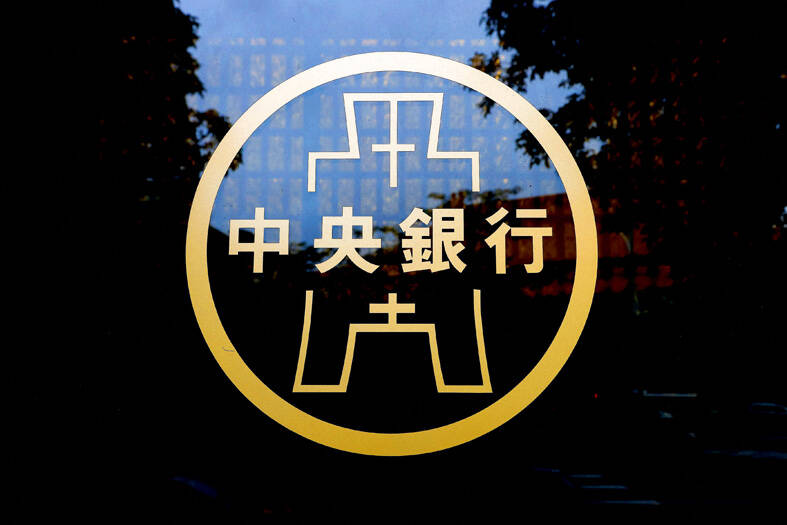Taiwan’s outbound direct investment reached a new high in the second quarter, as tech firms including Taiwan Semiconductor Manufacturing Co (台積電) and Hon Hai Precision Industry Co (鴻海精密) were keen to send funds abroad to expand their operations, the central bank said last week.
Data compiled by the central bank showed that outbound direct investment during the April-to-June period totaled US$10.7 billion, up from US$2.99 billion in the same period last year.
Taiwan’s net fund outflow in the second quarter hit US$14.57 billion in its financial account, which measures the flow of direct investment and portfolio investment, the central bank said, adding that the second quarter marked the 56th consecutive quarter of net fund outflows.

Photo: Reuters
The direct investment account recorded a net asset increase of US$6.54 billion in the second quarter. Of the components in the direct investment account, outbound direct investment by residents and inward direct investment by nonresidents posted net increases of US$10.7 billion and US$4.16 billion respectively, it said.
Taiwan’s portfolio investment account in the second quarter saw a net asset increase of US$13.06 billion. Of the components in the portfolio investment account, residents’ portfolio investment abroad registered a net increase of US$16.05 billion in the wake of a rise in holdings of outbound debt securities, the central bank said.
In addition, nonresidents’ portfolio investment posted a net increase of US$2.99 billion, mainly due to a rise in Taiwanese equity holdings by foreign investors, it added.
Meanwhile, Taiwan’s current account, which mainly measures the exports and imports of the nation’s merchandise and services, registered a surplus of US$21.82 billion in the three-month period.
The goods trade surplus fell by US$1.22 billion from a year earlier to US$20.82 billion, on the back of an increase in imports of integrated circuits, and information and communications technology products.
Meanwhile, the services account recorded a deficit of US$4.06 billion, up from a US$2.29 billion deficit a year ago, largely due to an increase in travel expenses overseas, the central bank said.
In the first half of this year, Taiwan’s financial account saw a US$43.59 billion net fund outflow, while its current account recorded a surplus of US$51.49 billion, the central bank said.
Over the past 56 quarters, accumulated net fund outflows hit almost NT$26.58 trillion (US$850 billion).
Addressing concerns that investors would keep moving funds out of the country and into US dollar-denominated assets, the central bank said net fund outflows were common among countries such as Taiwan, which have long-term current account surpluses.
Japan, Singapore, South Korea and Germany all have long-term current account surpluses and tend to record net financial account outflows, the central bank said.

SELL-OFF: Investors expect tariff-driven volatility as the local boarse reopens today, while analysts say government support and solid fundamentals would steady sentiment Local investors are bracing for a sharp market downturn today as the nation’s financial markets resume trading following a two-day closure for national holidays before the weekend, with sentiment rattled by US President Donald Trump’s sweeping tariff announcement. Trump’s unveiling of new “reciprocal tariffs” on Wednesday triggered a sell-off in global markets, with the FTSE Taiwan Index Futures — a benchmark for Taiwanese equities traded in Singapore — tumbling 9.2 percent over the past two sessions. Meanwhile, the American depositary receipts (ADRs) of Taiwan Semiconductor Manufacturing Co (TSMC, 台積電), the most heavily weighted stock on the TAIEX, plunged 13.8 percent in

A wave of stop-loss selling and panic selling hit Taiwan's stock market at its opening today, with the weighted index plunging 2,086 points — a drop of more than 9.7 percent — marking the largest intraday point and percentage loss on record. The index bottomed out at 19,212.02, while futures were locked limit-down, with more than 1,000 stocks hitting their daily drop limit. Three heavyweight stocks — Taiwan Semiconductor Manufacturing Co (TSMC, 台積電), Hon Hai Precision Industry Co (Foxconn, 鴻海精密) and MediaTek (聯發科) — hit their limit-down prices as soon as the market opened, falling to NT$848 (US$25.54), NT$138.5 and NT$1,295 respectively. TSMC's

ASML Holding NV, the sole producer of the most advanced machines used in semiconductor manufacturing, said geopolitical tensions are harming innovation a day after US President Donald Trump levied massive tariffs that promise to disrupt trade flows across the entire world. “Our industry has been built basically on the ability of people to work together, to innovate together,” ASML chief executive officer Christophe Fouquet said in a recorded message at a Thursday industry event in the Netherlands. Export controls and increasing geopolitical tensions challenge that collaboration, he said, without specifically addressing the new US tariffs. Tech executives in the EU, which is

In a small town in Paraguay, a showdown is brewing between traditional producers of yerba mate, a bitter herbal tea popular across South America, and miners of a shinier treasure: gold. A rush for the precious metal is pitting mate growers and indigenous groups against the expanding operations of small-scale miners who, until recently, were their neighbors, not nemeses. “They [the miners] have destroyed everything... The canals, springs, swamps,” said Vidal Britez, president of the Yerba Mate Producers’ Association of the town of Paso Yobai, about 210km east of capital Asuncion. “You can see the pollution from the dead fish.